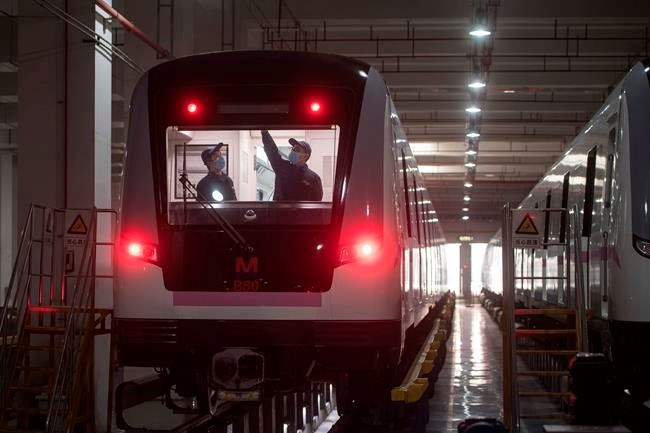BEIJING — Chinese authorities said Tuesday they will end a two-month lockdown of most of coronavirus-hit Hubei province at midnight, as domestic cases of the virus continue to subside.
People with a clean bill of health will be allowed to leave, the provincial government said. The city of Wuhan, where the outbreak started in late December, will remain locked down until April 8.
China barred people from leaving or entering Wuhan starting Jan. 23 in a surprise middle-of-the-night announcement and expanded it to most of the province in succeeding days. Train service and flights were
The drastic steps came as the coronavirus began spreading to the rest of China and overseas during the Lunar New Year holiday, when many Chinese travel.
The virus raged for weeks in Wuhan, the provincial capital, and surrounding cities. Hospitals overflowed, and temporary ones were hastily set up to try to isolate the growing number of infected patients.
The outbreak gradually was brought under control, and Hubei has seen almost no new infections for more than a week.
The move to end the lockdown shows the authorities' apparent faith in the success of the drastic measures in much of China. After barring people from leaving or entering the city, authorities swiftly expanded what at the time were unprecedented measures to most of Hubei, with its tens of millions of residents, as well as many other parts of the country of 1.4 billion people.
It remains unclear, however, whether other cities and provinces, such as Beijing, the capital, will allow people leaving Hubei to enter their jurisdictions, and quarantine rules are expected to remain in place for those
Officials have now largely turned their attention to the threat of the virus returning from abroad, with almost all new cases being recorded among passengers
Determined to slam the door on the crisis, starting Wednesday, Beijing will also require everyone arriving from overseas to be tested for the coronavirus in addition to being quarantined.
In a notice published online Tuesday, Beijing city authorities said those who have entered the capital within the last 14 days will also undergo mandatory testing.
“Currently, the imported risk from the epidemic’s rapid spread overseas continues to rise,” said the Beijing notice.
China’s National Health Commission on Tuesday reported 78 new coronavirus cases, among which 74 were imported.
At the same time, the government is pushing efforts to kick-start the world's second-largest economy and put money in the pockets of workers who have gone weeks without salaries. While most of Beijing's world-famous tourist sites remain closed, parts of the Great Wall have reopened and some restaurants were reopening for business on the condition that customers do not sit facing each other.
The government says work has restarted on about 90% of major public construction projects across the country, excluding Hubei. While many migrant workers remain trapped by travel bans, industrial production has also restarted, including in the crucial auto manufacturing industry, which is largely based in Wuhan, and in businesses that provide critical links in global supply chains.
Ken Moritsugu, The Associated Press



